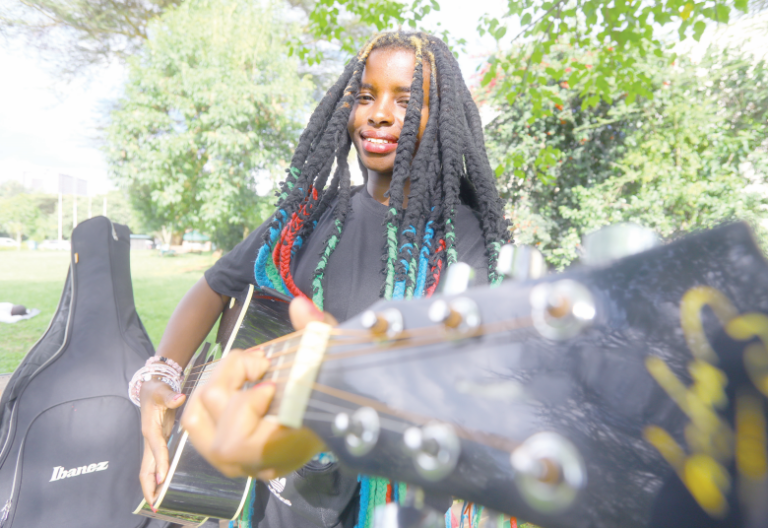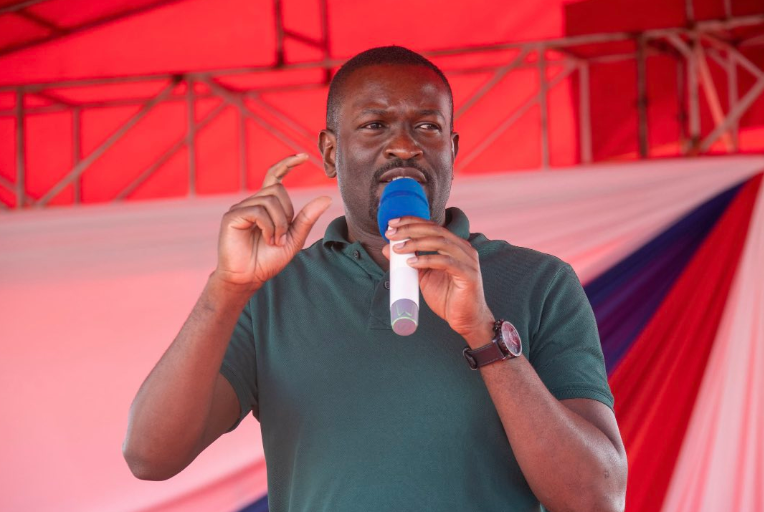Kenyan tree hugger aims for 72-hour record in Amazon

After recently conquering the world at John Michuki Memorial Park by setting the Guinness World Record for the longest tree-hugging marathon at 48 hours, Truphena Muthoni is eyeing to conquer the lungs of earth, the Amazon Forest.
Her latest quest is to hug a Samaúma tree estimated to be about 300 years for three consecutive days, which translates to 72 hours.
“As the world turns its eyes to COP30, I am returning to the Amazon with a mission rooted in love, responsibility, and resilience, a 72-hour silent tree hugging marathon at Quilombo do Abacatal,” Muthoni told People Daily.
Her choice of the tree is symbolic as it embodies her earlier message at John Michuki Memorial Park, one of embracing tree-hugging for better mental health.
The Samaúma tree is sacred to the Huni Kuin people, the indigenous people found around Brazil and Peru. For these people, the tree is a spirit that brings healing, a connection between heaven and earth.
Huni Kuin translates to “true people” or “genuine people” and is the name given to themselves by Indigenous people living in the Amazon rainforest, specifically in Brazil and Peru.
The Huni Kuin are deeply connected to their ancestral lineage and the natural world, viewing themselves as guardians of their culture and territory.
Though her stature is small, Muthoni will be hugging this tree, which is one of the largest trees in the world, reaching 70 metres in height and towering over other trees in the rainforest.
Awaiting ratification
Muthoni’s latest challenge builds on her previous 48 hours’ world record set at John Michuki Memorial Park on February 2, 2025.
“As I wait for the ratification of my record by the Guinness World Record team, I applied for another challenge in the Amazon, and in a record time, it was approved,” she revealed, “I am offering a silent yet powerful gesture of social responsibility”.
Alongside the endurance challenge, Muthoni will be launching a global Climate Justice Anthem, at the Amazon River co-created with children in schools across the globe.
“These young voices often left out of decision-making are central to this movement. We are visiting schools, listening to their stories, and weaving them into an anthem that speaks from the heart and across cultures,” she revealed.
In preparation for the challenge and other activities in Brazil, Muthoni is learning Brazilian and Portuguese through the Brazilian Embassy ABC’s language structure.
“This is an important step in connecting more deeply with the people and communities I will stand beside. This is a call to conscience, one that echoes from the forest to the classroom, from local communities to global platforms,” she added.
To facilitate her challenge in the Amazon, Muthoni is also looking for sponsors, donors and government support.
“The Ministry of Environment has promised to support my quest and the discussion is ongoing. Other organisations have reached out and we are working on levels of engagement,” she said.
Why the Amazon Forest?
The Amazon rainforest is often called the “lungs of the Earth” because it plays a vital role in regulating the planet’s climate and oxygen supply.
Covering over 2.5 million square miles and spanning nine countries – Brazil, Peru, Colombia, Venezuela, Ecuador, Bolivia, Guyana, Suriname, and the overseas territory of French Guiana – it is the world’s largest tropical rainforest.
This vast ecosystem, which stretches from the Atlantic Ocean and includes the Amazon River Basin and the Amazon Forest, is home to 10 per cent of the planet’s known biodiversity and contributes 15 to 16 per cent of the world’s total river discharge into the ocean.
Billions of trees absorb tons of carbon dioxide every year and slow down the climate change along with producing 20 per cent of earth’s oxygen, hence named ‘Lungs of Earth.
By choosing the Amazon, Muthoni aims at awakening the earth conscience on how it is treating the Mother Nature.
“In a time when development threatens ancestral ecosystems and communities, I believe it is essential to pause, reflect, and show the world that protecting the planet is not optional, it’s a shared human duty,” she said.
It is estimated that over 20 per cent of global rainforests have already been destroyed due to land clearing for agricultural production, logging, mining and other human activities.
In addition to its devastation of the natural environment, deforestation also contributes significantly to changing climates by releasing tonnes of carbon dioxide into the atmosphere.
As the world prepares for COP30, the BBC has uncovered a jaw-dropping irony in Brazil’s preparations for the COP30 climate summit, set for November 2025 in Belém.
A four-lane highway, Avenida Liberdade, is being bulldozed through tens of thousands of acres of protected Amazon rainforest.
Touted as a traffic solution for the 50,000 world leaders and delegates expected to attend, this project drips with hypocrisy, exposing the gaping chasm between the climate summit’s green rhetoric and its deforestation reality.
While global elites preach carbon cuts and sustainability, the Amazon—Earth’s mightiest carbon sink and biodiversity stronghold—is being felled to roll out the red carpet for their another talking shop parade.
To those willing to support Muthoni, she is ready to carry your flag high and represent Kenya to the world.











